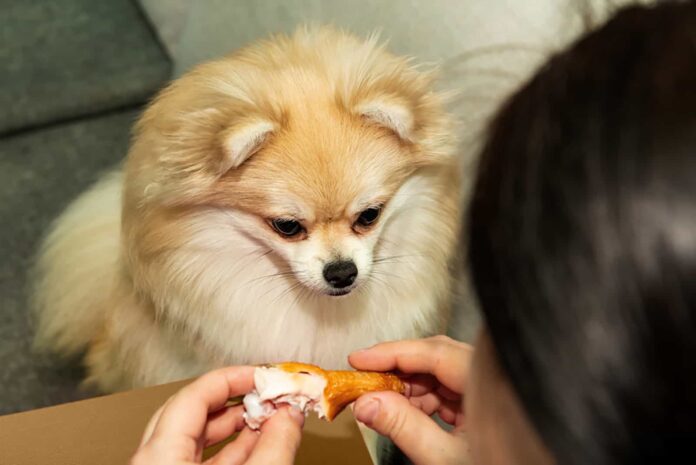A proper pomeranian diet is crucial for maintaining the health and vitality of these adorable little fluffballs. As a small breed with specific nutritional needs, Pomeranians require carefully planned meals to support their energetic nature and maintain their signature coat.
Why Your Pom’s Diet Matters
Your Pomeranian’s nutritional needs are unique, and understanding them is essential for their overall well-being At Pet like boss, we’ve seen countless cases of how the right diet can transform a Pom’s health and energy levels. If you’re interested in learning more about dog care in general, check out our comprehensive dog guide
Key Components of a Healthy Pomeranian Diet
1. High-Quality Protein Sources
Protein is the foundation of any good pomeranian diet. Look for:- Premium animal proteins (chicken, fish, lamb)- Easily digestible protein sources- Avoid mysterious meat by-products- Aim for 22-28% protein content
2. Essential Fatty Acids
Omega-3 fatty acids are crucial for:- Maintaining that gorgeous fluffy coat- Supporting brain development- Reducing inflammation- Promoting healthy skin
3. Appropriate Kibble Size
Your tiny friend needs food that matches their size – Small bite-sized pieces- Easy-to-chew texture- Prevents choking hazards- Supports dental health
Feeding Schedule and Portions
A proper pomeranian diet isn’t just about what they eat, but also how much and when:
- Puppies (2-12 months): 3-4 small meals daily
- Adults: 2-3 meals daily
- Seniors: 2 meals with adjusted portions
Sample Daily Menu
Morning – 1/4 cup high-quality small breed kibble- Small piece of lean protein- Fresh water always available
Evening:- 1/4 cup kibble- Tiny portion of cooked vegetables- Optional healthy treat
Foods to Avoid
Keep these away from your precious Pom:- Chocolate- Grapes and raisins- Onions and garlic- Xylitol-containing products- Fatty table scraps
Special Considerations for Pomeranians
Your pomeranian diet should account for:- Small stomach capacity- Fast metabolism- Dental health needs- Tendency toward obesity
Common Dietary Mistakes
-
Overfeeding
- Can lead to obesity
- Strains joints
- Affects mobility
-
Poor Quality Food
- Cheap fillers
- Artificial preservatives
- Low nutritional value
-
Inconsistent Feeding
- Upsets stomach
- Creates bad habits
- Affects metabolism
Transitioning to New Foods
When changing your Pom’s food:1. Start with 75% old food, 25% new2. Gradually increase new food ratio3. Monitor for any digestive issues4. Complete transition over 7-10 days
Supplements and Treats
Consider these additions:- Fish oil for coat health- Probiotics for digestion- Limited healthy treats (10% of daily calories)- Joint supplements for seniors
Signs of a Good Diet
Your Pom should show:- Consistent energy levels- Healthy coat shine- Regular bowel movements- Maintained ideal weight- Good dental health
Tips for Picky Eaters
Some Poms can be finicky about their food:- Stick to regular feeding times- Don’t give in to begging- Make meals interesting- Consider wet food mixing
Age-Specific Dietary Needs
Puppies
- Higher protein needs
- More frequent meals
- Growth-supporting nutrients
- DHA for brain development
Adults
- Balanced maintenance diet
- Weight management
- Dental health focus
- Regular exercise combo
Seniors
- Lower calorie needs
- Joint support
- Easier-to-digest options
- Added supplements
Monitoring Your Pom’s Health
Keep track of:- Weight changes- Eating habits- Stool consistency- Energy levels- Coat condition
When to Consult a Vet
Seek professional advice if:- Sudden appetite changes- Unexpected weight loss/gain- Digestive issues persist- Allergic reactions occur- Behavioral changes
Final Thoughts
Creating the perfect pomeranian diet might seem overwhelming, but it’s totally worth it for your furry friend’s health and happiness. Remember that every Pom is unique, so what works for one might not work for another. Stay observant, make adjustments as needed, and always prioritize quality over convenience.
Keep in mind that diet is just one aspect of caring for your Pomeranian. For more comprehensive pet care tips and advice, visit Pet like boss where you’ll find everything you need to keep your furry friend healthy and happy.
Remember to consult with your vet before making any major changes to your Pom’s diet, especially if they have specific health concerns or dietary restrictions. With proper attention to their nutritional needs, your Pomeranian will thrive and continue to be the adorable, energetic companion you love!












